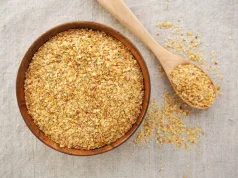What if I told you that people who adopt eight simple lifestyle habits by age 40 live an average of 24 years longer than those who don’t?
That’s not wishful thinking. It’s the finding from a massive 2023 study presented at Nutrition 2023 analyzing over 700,000 American veterans that should make us all sit up and pay attention. The best part? You don’t need expensive supplements, extreme diets, or a trust fund to implement these life-extending habits.
Whether you’re 25 or 65, the habits that extend lifespan are surprisingly accessible. And while genetics play a role in longevity, research consistently shows that lifestyle choices matter far more than most people realize.
1. Be Physically Active Every Day
The Science Is Clear
If exercise came in pill form, it would be the most prescribed medication in history. That’s not hyperbole.
Physical inactivity increases your risk of early death by 30 to 45 percent, making it as dangerous as smoking. Meanwhile, people who exercise regularly don’t just live longer; they live better, maintaining independence and vitality decades later than their sedentary peers.
What “Active” Really Means
Forget the myth that you need two-hour gym sessions or marathon training. The longevity benefits kick in at surprisingly modest levels of activity.
The sweet spot appears to be around 150 minutes of moderate exercise per week. That breaks down to just over 20 minutes daily. A brisk walk counts. So does gardening, dancing to your favorite music while cleaning, or playing with your kids at the park.
Strength training twice a week adds another layer of protection, particularly against age-related muscle loss that starts accelerating after 30. We’re talking about 15 to 20 minutes of bodyweight exercises, resistance bands, or light weights. Nothing extreme.
Making It Stick When You’re Busy
In Your 30s and 40s: Schedule exercise like a meeting. Early morning workouts eliminate excuses and ensure nothing else crowds them out. Keep resistance bands in your office for quick strength sessions between calls.
In Your 50s and 60s: Focus on activities that also challenge balance and flexibility. Tai chi, yoga, and swimming provide multiple benefits while being gentle on joints. Join group classes for the social element, which independently boosts longevity.
In Your 70s and Beyond: Consistency trumps intensity. Daily walks, chair exercises, and water aerobics maintain function. The goal shifts from building to maintaining, and that’s perfectly fine.
The Compound Effect
Here’s what most people miss: exercise benefits compound over time. The person who walks 15 minutes daily for 30 years will be in dramatically better shape than someone who does sporadic intense workouts. Start where you are. A five-minute walk is infinitely better than no walk.
2. Eat a Healthy, Balanced Diet
Beyond the Mediterranean Diet Hype
Yes, the Mediterranean diet correlates with longer life. But you don’t need to eat like a Greek fisherman to get the benefits.
The longevity formula is simpler than most diet books suggest: eat mostly plants, not too much processed food, and enough protein to maintain muscle mass as you age. That’s it. No superfoods required. While some longevity experts like Dr. David Sinclair advocate for specific supplements, the foundation remains whole foods.
The Practical Approach
Think of your plate as real estate. Half goes to vegetables and fruits. One quarter to lean protein. One quarter to whole grains or starchy vegetables. Add a thumb-sized portion of healthy fats like nuts, olive oil, or avocado.
This isn’t about perfection. It’s about patterns.
Having pizza on Friday night won’t shorten your lifespan. Eating processed foods for most meals probably will. The difference between occasional indulgence and daily habit is everything when it comes to longevity.
Age-Adjusted Nutrition
Under 50: Focus on variety and establishing good patterns. Your metabolism is forgiving, but the habits you build now determine your health trajectory. Prioritize whole foods over supplements.
Over 50: Protein becomes increasingly important. Aim for 25 to 30 grams per meal to maintain muscle mass. Calcium and vitamin D matter more for bone health. Consider smaller, more frequent meals if digestion becomes an issue. Women in this age group might also benefit from targeted anti-aging supplements alongside a healthy diet. For those interested in NAD+ boosters to support cellular energy and longevity, Renue by Science offers high-quality options that have gained attention after Andrew Huberman mentioned using the brand on Joe Rogan’s podcast. Use code BRAINFLOW for 10% off your order.
Over 70: Appetite often decreases, making nutrient density crucial. Every bite should count. Smoothies and soups can help when chewing becomes difficult. Stay hydrated; thirst signals weaken with age.
The Social Side of Eating
Cultures with the longest-lived people share meals. They eat slowly, with others, and stop before they’re full. The Blue Zones research shows that how you eat matters almost as much as what you eat. Make at least one meal daily a social event, even if it’s a video call with family during lunch.
3. Get Sufficient Sleep Every Night
Sleep researchers have a saying: “Sleep is not optional equipment.”
Yet somehow we’ve created a culture that treats sleep deprivation as a badge of honor. The data tells a different story. People who consistently sleep less than six hours nightly have a 13 percent higher mortality risk. Those who sleep seven to eight hours live longest.
Why Sleep Matters More Than You Think
During sleep, your brain literally washes itself. The glymphatic system, discovered in 2012, removes toxic proteins that accumulate during waking hours. These include the beta-amyloid associated with Alzheimer’s disease.
Your body also uses sleep to regulate hormones that control hunger, stress, and growth. Shortchange sleep, and you’re essentially aging yourself faster at the cellular level.
Creating a Sleep Sanctuary
Temperature matters more than most people realize. The ideal bedroom temperature for sleep is between 60 and 67 degrees Fahrenheit. Your body needs to cool down to initiate sleep, which is why a hot bath before bed actually helps; it draws blood to the surface, cooling your core when you get out.
Light is the other critical factor. Even small amounts of light can disrupt melatonin production. Blackout curtains, eye masks, or simply turning your alarm clock away from you can make a significant difference.
When Sleep Becomes Elusive
For Shift Workers: Consistency is impossible, so focus on sleep quality. Use blackout curtains, white noise, and keep the same pre-sleep routine regardless of when you’re sleeping.
For New Parents: Sleep when the baby sleeps isn’t just advice; it’s survival. Forget the dishes. Prioritize rest over a clean house.
For Chronic Insomniacs: Cognitive behavioral therapy for insomnia (CBT-I) has better long-term outcomes than sleeping pills. Many apps now offer guided CBT-I programs. Natural sleep aids like magnesium glycinate can also help – this specific form from Doublewood is well-absorbed and less likely to cause digestive issues. If you’ve tried everything, see a sleep specialist. Sleep apnea affects millions and is vastly underdiagnosed.
4. Avoid Smoking and Other Toxic Substances
This might seem obvious in 2024, but the statistics remain stark. Smoking still accounts for one in five deaths in the United States. If you smoke, quitting is the single most impactful thing you can do for longevity.
The Quitting Reality
Most successful ex-smokers try to quit between 6 and 30 times before it sticks. That’s not failure; it’s practice.
What works varies by person. Nicotine replacement therapy doubles quit rates. Prescription medications like varenicline can triple them. Combining methods works even better. Cold turkey has the lowest success rate but works for some people. The best method is the one you’ll actually try.
The Alcohol Question
The research on alcohol has shifted dramatically. The old “one glass of red wine is good for your heart” advice? Largely debunked. The latest evidence suggests no amount of alcohol is beneficial for health.
That doesn’t mean you need to become a teetotaler. But if you’re drinking for health benefits, stop. If you’re drinking for enjoyment, moderate means two drinks or less per day for men, one or less for women. Binge drinking, even occasionally, significantly increases mortality risk.
The Hidden Toxins
Prescription opioids have created a silent epidemic. What starts as legitimate pain management can spiral into dependency. If you’re prescribed opioids, have an exit strategy from day one. Ask about alternatives. Set a firm end date.
Secondhand smoke still kills 41,000 Americans annually. If you live with a smoker, establish outdoor smoking rules. Your lungs will thank you.
5. Manage Stress and Mental Health
Chronic stress doesn’t just feel bad; it literally shortens your telomeres, the protective caps on your DNA that correlate with lifespan.
Understanding Your Stress Response
Not all stress is created equal. Acute stress, like a deadline or workout, can actually be beneficial. It’s chronic stress that kills. The difference? Recovery time. If you’re constantly in fight-or-flight mode, your body never gets to repair itself.
The most dangerous stress is the kind you feel you can’t control. Studies on British civil servants found that low-control, high-demand jobs correlated with earlier death, regardless of income level. CEOs often outlive their assistants, despite having objectively more stressful jobs, because they have more control.
Practical Stress Management
The Two-Minute Rule: Can you fix it in two minutes? Do it now. Otherwise, schedule it. Half of stress comes from mental load, not actual problems.
The Circle of Control: Write down your stressors. Divide them into things you can control, things you can influence, and things you can’t control. Focus your energy accordingly.
The 4-7-8 Breath: Inhale for 4, hold for 7, exhale for 8. Three cycles activate your parasympathetic nervous system. It’s free, portable, and more effective than most anxiety medications for acute stress.
Building Your Support Network
Social isolation is as deadly as smoking. But “social” doesn’t mean Facebook friends. It means people you could call at 2 AM if you needed help.
Quality beats quantity. Three close friends who truly know you are worth more than 30 acquaintances. Make the effort to maintain these relationships. Schedule regular calls. Show up for the important moments. Be vulnerable. The people who live longest have strong social networks, and that’s not coincidence.
When to Seek Professional Help
If you’ve been feeling down for more than two weeks, see someone. If anxiety interferes with daily life, see someone. If you’re using alcohol or other substances to cope, see someone.
Mental health treatment has come a long way. Teletherapy makes it accessible. Many therapists offer sliding scales. Your employer might offer an Employee Assistance Program with free sessions. There’s no trophy for toughing it out.
6. Maintain a Healthy Weight
Let’s address the elephant in the room: weight loss advice is everywhere, most of it is garbage, and the diet industry makes billions from our collective failure.
Here’s what actually matters for longevity.
The Numbers That Matter (And Don’t)
BMI is flawed but useful at population levels. For individuals, waist circumference might be more telling. If your waist is more than half your height, you’re likely carrying dangerous visceral fat, regardless of what the scale says.
But obsessing over numbers misses the point. The habits that naturally lead to healthy weight are what extend lifespan. Focus on behaviors, not outcomes.
The Set Point Reality
Your body has a weight range it defends vigorously. Crash diets trigger starvation responses that slow metabolism and increase hunger hormones. This is biology, not weakness.
Sustainable weight loss means 1 to 2 pounds per week, maximum. Anything faster triggers compensatory mechanisms that virtually guarantee regain. The people who maintain weight loss long-term lose slowly and never stop the habits that got them there.
Practical Strategies That Actually Work
Protein at Every Meal: Aim for 20 to 30 grams. It preserves muscle during weight loss and keeps you full longer.
Volume Eating: Fill up on vegetables. You can eat an entire bag of spinach for fewer calories than a small cookie. Your stomach doesn’t count calories; it measures stretch.
Sleep and Stress: Poor sleep increases ghrelin (hunger hormone) and decreases leptin (satiety hormone). Chronic stress increases cortisol, which promotes belly fat storage. Sometimes the best diet intervention is a nap.
Strength Training: Muscle burns calories at rest. Every pound of muscle increases your daily calorie burn. As you age, maintaining muscle becomes even more critical for metabolism and function.
7. Keep Your Brain Active and Engaged
Cognitive decline isn’t inevitable. The brain remains plastic throughout life, capable of forming new connections and even generating new neurons in certain regions.
Beyond Crossword Puzzles
Brain training apps make big promises but deliver mixed results. What consistently works? Novel, complex activities that challenge multiple cognitive domains simultaneously.
Learning a musical instrument engages motor, auditory, and executive functions. Learning a new language creates new neural pathways and might delay dementia by several years. Dancing combines physical activity, coordination, social interaction, and memory.
The key word is “learning.” Doing the same crossword puzzle style for 30 years provides diminishing returns. Your brain needs progressive challenges.
The Purpose Factor
People with a strong sense of purpose live longer. In Okinawa, they call it “ikigai.” In Costa Rica, “plan de vida.” The concept transcends cultures: knowing why you wake up in the morning correlates with longevity.
Purpose doesn’t mean grand ambition. It might be raising grandchildren, tending a garden, or volunteering at the library. What matters is feeling needed and engaged with life. Retirement without purpose correlates with cognitive decline and earlier death.
Social Engagement as Brain Training
Conversation is cognitively demanding. You’re processing language, reading social cues, accessing memories, and formulating responses in real-time. It’s a full-brain workout disguised as coffee with friends.
Join a book club. Take a class. Volunteer somewhere that interests you. The combination of social interaction and mental stimulation provides double benefits. Online communities count, but in-person interaction seems to have additional benefits, possibly due to the complexity of processing non-verbal communication.
Protecting Your Cognitive Reserve
Think of cognitive reserve as your brain’s savings account. The more you build up through education, challenging work, and mental stimulation, the more you can afford to lose before showing symptoms of decline.
This is why highly educated people might have significant brain pathology at autopsy but showed few symptoms in life. They had reserve to spare. It’s never too late to make deposits in this account. Every book you read, every new skill you learn, every problem you solve adds to your reserve.
Implementing These Habits: The 1% Method
Trying to overhaul your entire lifestyle overnight is a recipe for failure. Instead, improve by 1 percent weekly.
- Week 1: Add a five-minute walk after lunch.
- Week 2: Replace one processed snack with fruit.
- Week 3: Set a consistent bedtime.
- Week 4: Call one friend you’ve been meaning to contact.
Small changes compound. After a year of 1 percent improvements, you’re not 52 percent better; you’re 67 percent better thanks to compounding. After two years, you’re nearly three times better. This is how ordinary people achieve extraordinary health outcomes.
The Bottom Line
The 2023 Veterans study found that adopting these eight lifestyle factors by middle age could add 24 years to life for men and 23 years for women. Even more encouraging? Adopting them later in life still provided substantial benefits. Starting at 50 added 21 years. Starting at 60 added 18 years.
It’s never too late to start, and it’s never too early either.
The habits that extend life aren’t complicated or expensive. They’re simple, daily choices that compound over time. Exercise a little. Eat real food. Sleep enough. Don’t smoke. Manage stress. Maintain healthy weight. Keep learning.
The science has shown us the path. The choice to walk it is yours.
Remember: you don’t have to be perfect. You just have to be consistent. Start with one habit. Master it. Add another. In a year, you’ll be amazed at the transformation. In a decade, you’ll have added years to your life and life to your years.








